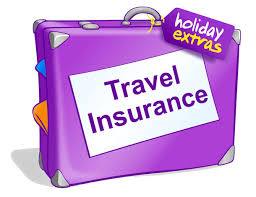Despite reports of the latest COVID-19 variant, BA5, generating
waves of re-infections and single-digit increases in U.S. hospitalizations,
trip takers are sticking with plans to go abroad. Nearly 80% of the world’s
most experienced travelers say the threat of a new COVID variant is unlikely to
make them cancel or postpone international travel this year, according to the
Summer 2022 Global Rescue Traveler Safety and Sentiment Survey. 
Travelers are ready to go!
“Whether it’s revenge travel or responsible travel following vaccination – or a combination of both, 7-out-of-10 travelers are much less concerned about travel compared to the beginning of the pandemic.
They feel
safe enough to plan trips and vacations because they’re vaccinated, borders are
open, and they have confidence they’ll be able to get home if the worst
happens,” said Dan Richards, CEO of Global Rescue and a member of the U.S.
Travel and Tourism Advisory Board at the U.S. Department of Commerce. 
Testing can help relieve anxiety.
Sixty-eight percent of survey respondents have already traveled
internationally since the pandemic. The balance expects to travel abroad by the
end of the year (16%) or in the first three months of 2023 (9%). 
International flights are on
the upswing.
More international travel is likely due to the recent U.S.
policy change. Nearly half of travelers (49%) say they are more likely to
travel internationally in the next 12 months now that U.S. officials no longer
require passengers flying to the U.S. to show a negative COVID viral test or documentation
of recovery from COVID before they board their flight.
“The decision to end the requirement for a negative COVID test
to enter the United States is a welcome step toward recognizing the decreasing
severity of the disease, the urgent need to restore confidence for travelers,
and support for an industry badly damaged by the pandemic,” Richards
said.
 |
| Cruises are popular again. |
Traveler hesitancy is unchanged since early 2022. After two
years of pandemic-related travel restrictions, a third of survey respondents still
experience travel anxiety related to where to go or when to get back to travel.
The biggest international travel fear among trip-takers is
testing positive for COVID and being stranded away from home (33%), a 37%
decrease from early 2022. Having an accident (24%), trip cancellation (21%) and
civil unrest/terrorism (8%) were the next biggest concerns. Being robbed, war,
natural disasters, and difficulty finding a COVID-19 testing facility each
accounted for less than 2% of responses.
“The pandemic has generated a tectonic shift in the traveler
mindset. Travelers learned emergency rescue and evacuation services are
essential, whether it's due to COVID, a natural disaster, civil unrest or
simply needing emergency help when you're traveling. The majority of travelers
(64%) say medical evacuation services are more important than Cancel For Any
Reason (18%) insurance or traditional travel insurance (15%). Traveler
preferences have moved travel protection for emergency medical services and
evacuation from ‘optional’ to ‘obligatory’,” Richards said. 
Having travel insurance
lessens the stress of the
unknown during travel.
Traveler confidence
increases.
“The decision by the CDC to ease its COVID-19 guidelines is a
welcome step toward recognizing the decreasing severity of the disease, the
urgent need to restore confidence for travelers, and support for an industry
badly damaged by the pandemic,” said Richards.
 |
| It's a great time to travel! |
“The CDC announcement is a much-needed improvement and will
contribute further to travelers’ peace of mind when planning trips and
vacations,” Richards said.
Information courtesy of Bill McIntyre, bmcintyre@globalrescue.com . Global Rescue, travel risk and crisis
response provider, conducted a survey of more than 2,100 of its current and
former members between July 12 and 16, 2022. The respondents exposed a range of
behaviors, attitudes and preferences regarding international and domestic
travel.









































